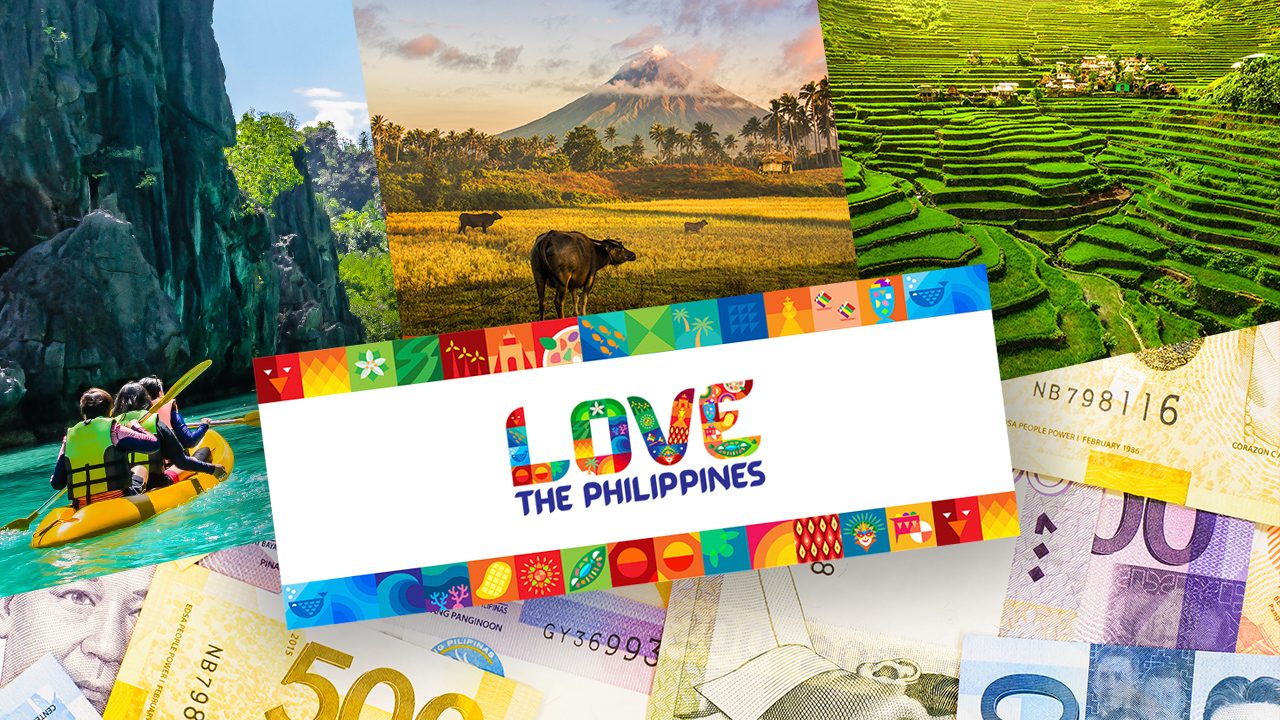SUMMARY
This is AI generated summarization, which may have errors. For context, always refer to the full article.

The Department of Tourism (DOT) is moving to cut ties with DDB Philippines, the advertising agency that used stock footage of other countries for its “Love the Philippines” campaign.
One of the burning questions now, especially in the world of public relations (PR), is whether or not the DOT will stick with the slogan. After all, there was sufficient market research pointing to its potential for success, despite criticisms on social media.
Other concerns of the image-building industry are the challenges and pressures that the company taking over will face. Taking over another’s hard work could be a nightmare for any PR or advertising agency.
Can the slogan still stand even after DDB Philippines’ exit? Is it even a good slogan to begin with, worthy of the DOT and Filipinos’ support?
Rappler talked to four PR practitioners to weigh in: If they were the DOT, what would their course of action be?

#1 mistake
A PR executive with over 18 years of experience said that the DOT’s first mistake was cutting off ties with the advertising agency.
“There have been several projects in the past, chronically plagiarized, wrong footages, etcetera, and it’s always the agency that ends up being thrown under the bus… This cements the DOT’s image of always washing its hands whenever there’s a crisis,” the PR veteran said.
In 2011, the Pilipinas Kay Ganda (Philippines So Beautiful) logo was found to be very similar to Poland’s tourism campaign. (READ: Branding ng bayan: Tourism slogans for the Philippines through the years)
In 2017, then-tourism secretary Wanda Teo planned to scrap “It’s more fun in the Philippines” and replace it with “Experience Philippines.” But the tourism branding video was widely criticized, with people saying it was similar to a South African tourism ad. McCann Worldgroup Philippines took full responsibility for the video but said it did not intend to plagiarize others’ work.
“They should have worked with DDB Philippines on this one to resolve their collective reputation crisis. It reflects on DOT’s leadership as well because they are the ones who approve and check.”
Guard rails
After this fiasco, whoever touches the controversial project will have to protect itself, considering the DOT’s history of washing its hands of crises. In turn, the DOT must also ensure that similar incidents don’t happen again.
The veteran PR expert recommended that the DOT keep a video bank or library to avoid videos from other countries being used. With a budget of at least P250 million in another rebranding effort, the government can allot funds for curating videos for multiple use.
As for the next agency taking over, the executive had some names in mind: either an agency in need of “redemption” from a past brouhaha, or an up and coming company needing its name to be known in the advertising or PR industry.
Meanwhile, a PR executive with 20 years of experience said that any output moving forward would have to be fact-checked.
“The onus is on DOT to actually fact check because ordinary netizens were able to do so,” he said.
A former media practitioner who has moved to PR questioned the DOT for not being able to spot the clips that were not shot in the Philippines.
“There is no excuse for the use of stock video and photos for a big campaign, since they’re selling the country to the world,” she said.
Advertising or PR?
Another industry expert, who has almost two decades of experience and has taught in an international school, said that the DOT should have tapped a PR agency and not an advertising company.
“If I were DOT, I would’ve gotten a PR agency to do a video for them because PR will be able to see the reputational impact of every tool that we use. We look beyond beauty. We are more strategic. Tourism is all about storytelling,” he said.
“The reputation management aspect was not touched because that is not the job of advertising.”
DDB Philippines is the creatives arm of DDB Group Philippines. It has other companies under its wing that handle other facets of communication.
Still viable
The same executive said that the DOT can still use the “Love the Philippines” campaign despite the controversy.
“It’s just a video. The ‘Love the Philippines’ campaign is the primary concern of DOT, the campaign (itself), not the video. You can always replace the video,” he said.
Crowdsourcing videos from actual tourists and obtaining testimonials are great resources for storytelling, according to the industry veteran. The rise of TikTok, Instagram Reels, and Facebook Stories are also good opportunities to showcase the Philippines’ scenic spots.
Another PR executive who works for one of the country’s most popular apps shared the sentiment, adding that “love can drown out hate.”
“There may be some tweaking needed and the tall order is for the message to be so good it can make people forget this mess. But the ultimate requirement is for the DOT and the agency to trust each other,” another executive said. – Rappler.com
1 comment
How does this make you feel?

![[OPINION] From ‘Puyat’ to ‘Tulog’: Clout-chasing street signs disrespected history](https://www.rappler.com/tachyon/2024/07/gil-puyat-july-26-2024.jpg?resize=257%2C257&crop=389px%2C0px%2C1080px%2C1080px)








Go on, continue with the “Love the Philippines” campaign. For those who have already associated it with “Rob the Philippines” (as stated by various vloggers with large followings) – it may just strengthened the link of the “Love the Philippines” message to the “Robberies in the Philippines (Rob the Philippines)” happening under the Marcos Jr. Administration. Perhaps, for most of the Filipino people, especially those blinded, deafened and muted by the Marcos Machinery of Social Disinformation, and prospective foreign tourists who know only a little about the Philippines, it is all right to do so. Hence, just go on.